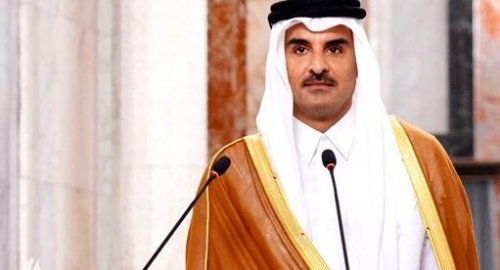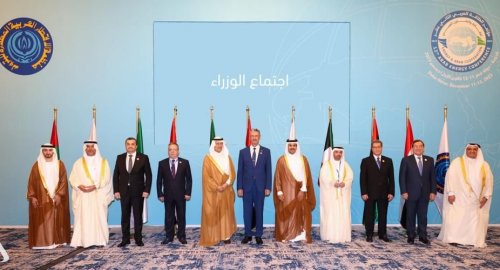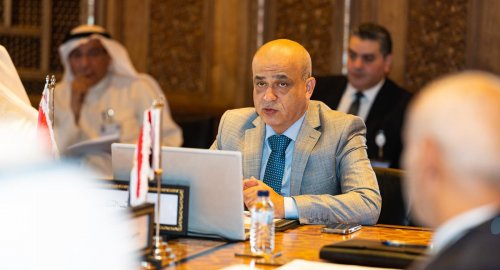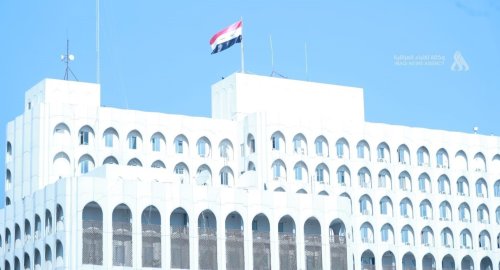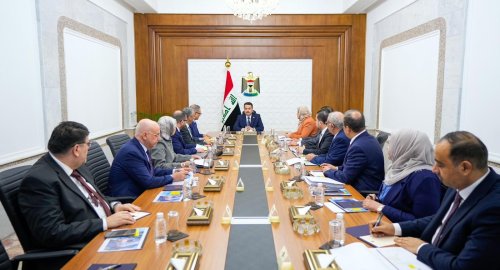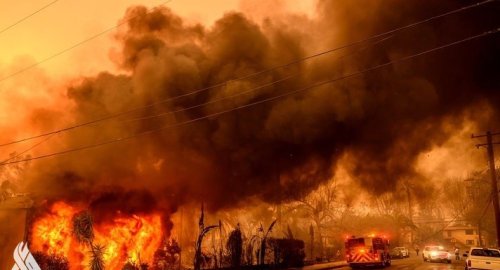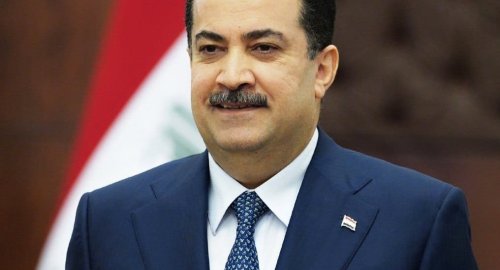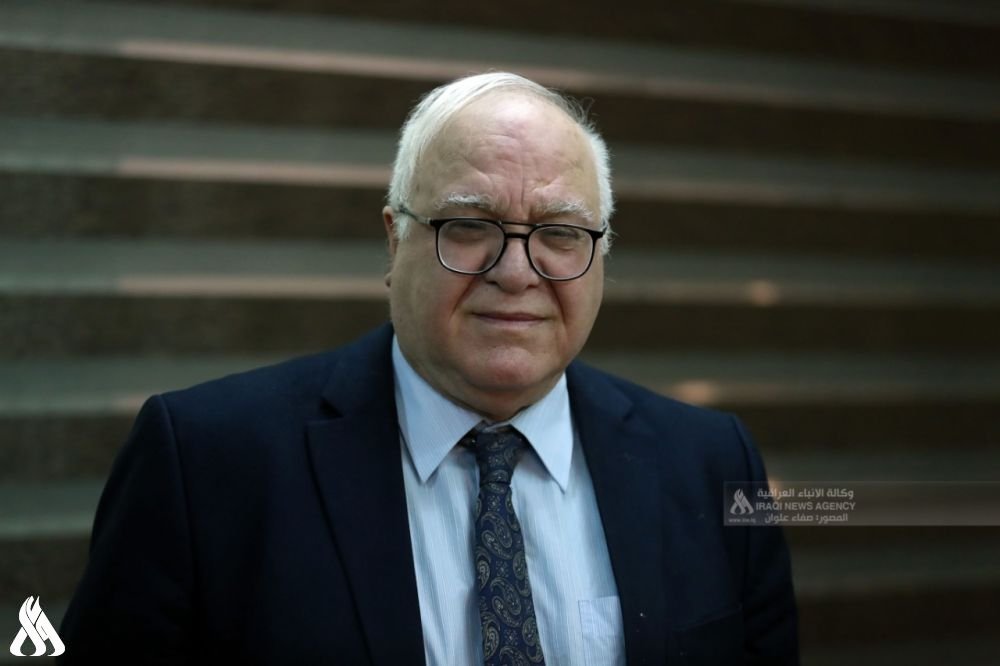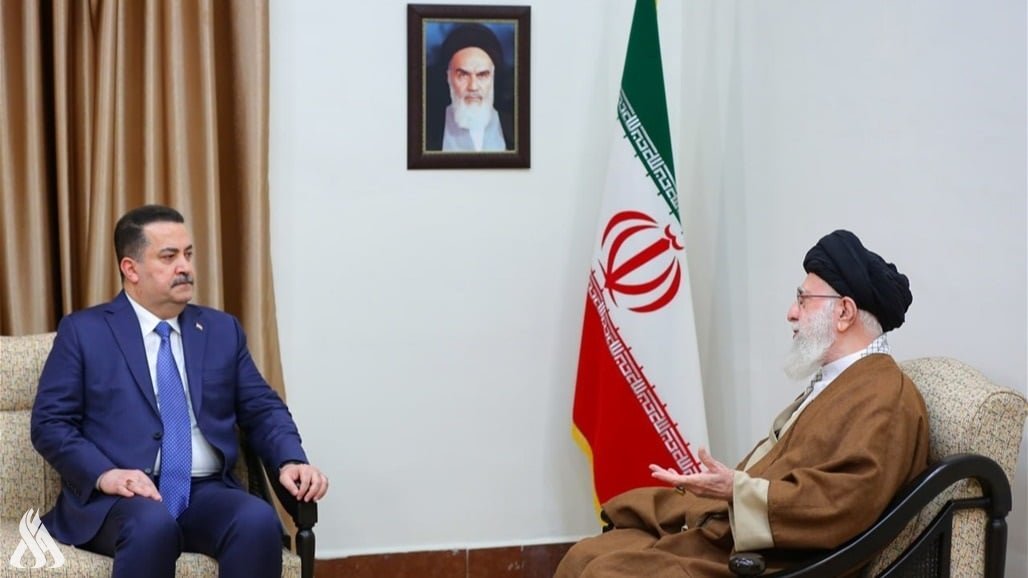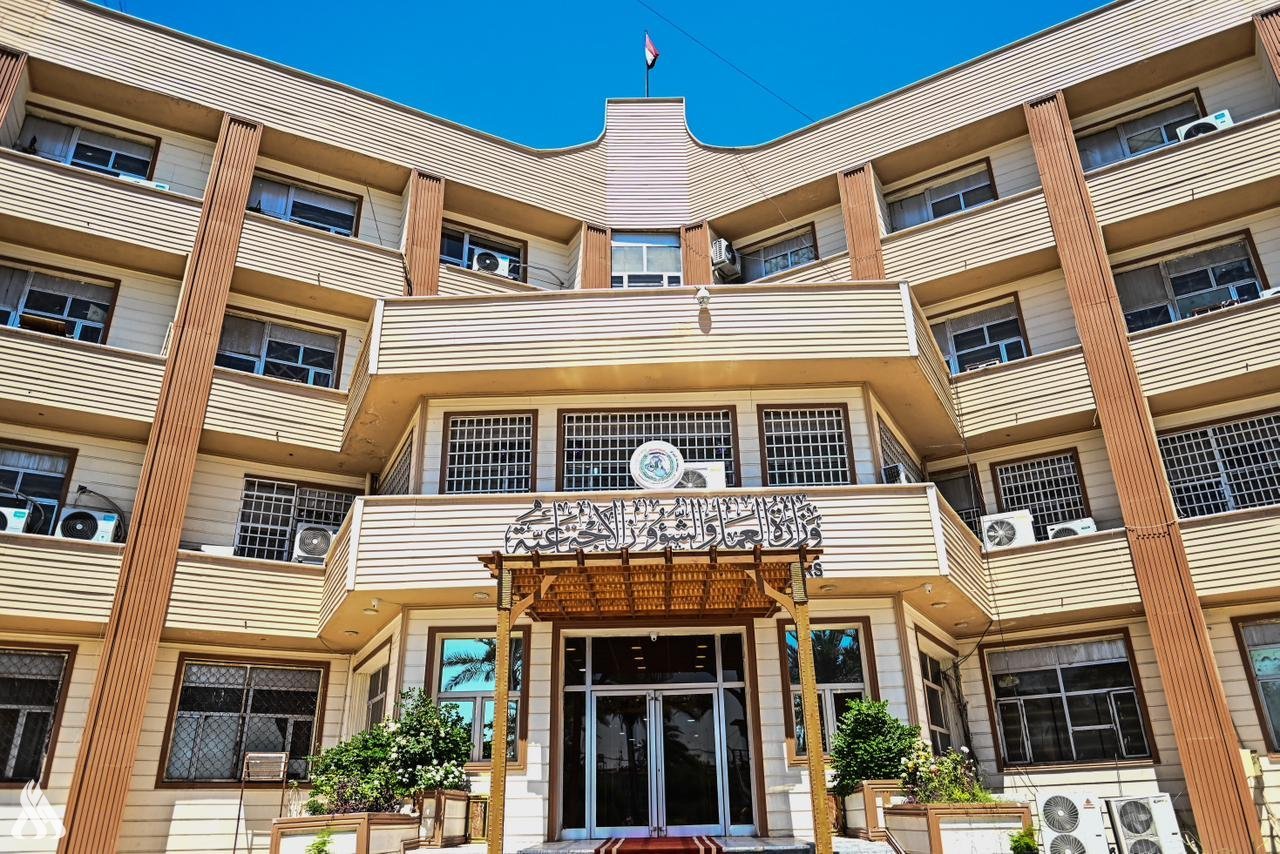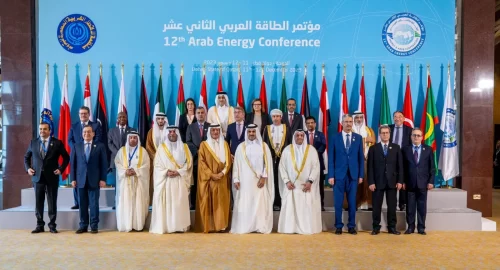
12th Arab Energy Conference Calls for Formulating Realistic Vision for Fair, Sustainable Energy Transition

- 12-12-2023, 18:30
Baghdad-INA
The Final Statement of the Second Arab Energy Conference in Qatar issued 7 recommendations regarding the challenges facing the energy sector.
"The Final Statement of 12th Arab Energy conference issued a set of recommendations regarding the challenges facing the energy sector," Oil Ministry spokesman Asim Jihad said in a statement received by the Iraqi News Agency (INA).
“The Twelfth Arab Energy Conference was held in the city of Doha, in the State of Qatar on 11th, 12th December 2023, under the slogan “Arab Energy and Cooperation” organized by the Organization of Arab Petroleum Exporting Countries (OAPEC), in full cooperation and coordination with the State of Qatar, the host of the conference, represented by Qatar Energy, in preparing for it,” he added.
The statement continued, “Sheikh Tamim bin Hamad Al Thani, Emir of the State of Qatar, sponsored the conference, which has become one of the important milestones in the process of joint Arab action and cooperation in the energy sector,” noting that “the conference began its work with a speech by Engineer Saad bin Sherida Al Kaabi, Minister of The State Department for Energy Affairs, Chairman of the Conference, welcomed the participants, noting the importance of this conference.”
From his part, The Secretary General of OAPEC Eng. Jamal Issa Al Loughani noted that the conference will address international developments in energy markets and their implications locally and globally. Given the connection of the energy industry with the environment and its impact on sustainable development in the Arab region and around the world, the conference sessions program ensured discussion from various aspects.
The conference was attended by ministers responsible for oil and energy, heads of delegations representing 17 Arab states, and several senior officials of Arab organizations and institutions, regional and international bodies.
"The Conference discussed many issues related to developments in energy conditions in many aspects relevant to international developments in energy markets and their implications for the Arab energy sector and the efforts of Arab States to address the challenges of energy transformations, energy and environmental issues, climate change and sustainable development as well as topics related to Arab and global energy sources, and subsequent petroleum industries energy demand management in the Arab States, technological developments and their implications for the energy sector ," the statement continued.
The statement continued, “The technical papers presented at the conference, which numbered twenty papers, were reviewed, and after extensive discussions, a set of recommendations were reached that can be summarized as follows:
First: International developments in energy markets and their implications on the Arab energy sector.
The Conference recommended that "the exploitation of hydrocarbon sources while controlling their emissions through clean technologies will undoubtedly enhance the world's access to zero neutrality in 2050, thus being part of the solution towards a balanced, gradual and responsible transition towards more durable energy sources that takes into account each country's national circumstances and priorities.
Second: Energy, environment, and sustainable development.
In this regard, the Conference recommended
All Arab States must adopt balanced development policies, including the integration of the environmental dimension into development plans, the balanced use of resources, the diversification of the economy and the development of environmental standards that are appropriate for the fullest achievement of sustainable development.
Working to consolidate the basic concepts of sustainable development in the petroleum industry, through the acquisition of modern technologies, energy conservation and rationalization of consumption, production of cleaner fuels, reduction of emissions, and improvement of performance in all stages of this industry.
Third: Energy sources in Arab countries and the world.
"The Conference reviewed developments in traditional sources of energy from Arab and global oil and natural gas and touched upon the role of nuclear energy as a reliable source in the transition to a sustainable energy future, as well as addressing the prospects of renewable energies and their role in reducing carbon dioxide emissions in Arab countries.”
Fourth: Arab and international petroleum industries.
The statement continued, "The conference reviewed developments in the oil refining industry and the necessary measures to enable refineries to face the challenges and limit their current and future negative repercussions. Developments in the natural gas industry were also discussed, and the opportunities and challenges facing Arab countries exporting gas in global markets, as well as reviewing developments in the field of the hydrogen industry as a fuel for the future and its expected role in the future energy mix.
Fifth: Managing energy demand in Arab countries.
The statement noted that "the evolution of energy consumption in the Arab States and its main features have been discussed, expectations of consumption up to 2045 according to various future scenarios, as well as projections of planned and committed energy investments across the Middle East and North Africa region, Including investment in renewable energy and carbon-removal technologies as part of a long-term strategic vision aimed at building a low-carbon future and the opportunities and challenges of moving towards a circular carbon economy have been addressed. as well as the extent to which Arab States can achieve the security and sustainability of electric power, electrical connectivity and plans and efforts towards increasing reliance on electricity generation using renewable energies ".
Sixth: Technological developments and their impact on the energy sector
"Technological developments and their implications for oil and gas supplies, technologies that support the transition to a low-carbon future, and how to confront and address technical limitations and gaps were reviewed. The conference highlighted the importance of these developments."
Seventh: Place and time of the next conference
The statement continued, “Engineer Jamal Issa Al-Loughani, Secretary-General of the Organization of Arab Petroleum Exporting Countries, at the end of the conference, gave a speech in which he expressed his thanks and appreciation to everyone who contributed to the success of the conference, He also welcomed the invitation of the Kingdom of Saudi Arabia to host the Thirteenth Arab Energy Conference in the city of Riyadh in 2027, wishing the Kingdom all the best in organizing the next conference to ensure its success and the achievement of its desired goals.
The statement concluded by saying, “The participants expressed their appreciation and gratitude for what the government and people of the State of Qatar provided, and for the authentic traditions of hospitality, which had the greatest impact in facilitating the work of the conference.”
Death toll from Los Angeles fires rises
- International
- 05:57
SCI details its achievements throughout the year
- Security
- 05:56
